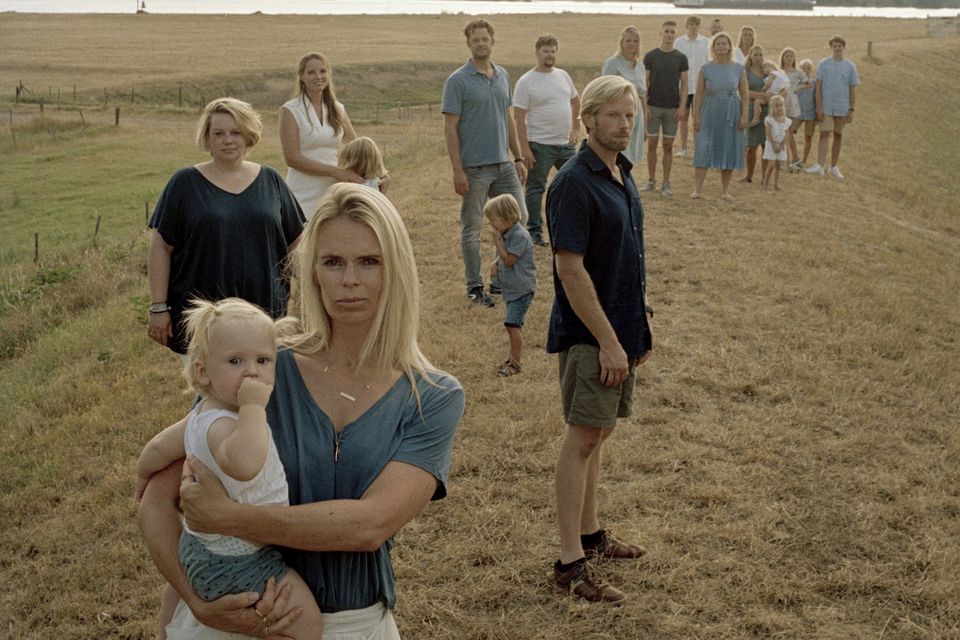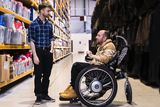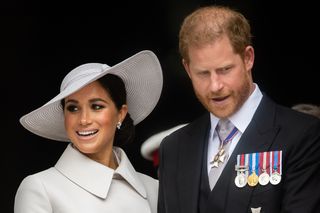Seeds of Deceit: The deeply disturbing tale of the Dutch fertility doctor who fathered 200 children
The jaw-dropping story is told in Dutch documentary series Seeds of Deceit
Some of the children born to women Dr Jan Karbaat impregnated with his own sperm. Photo: BBC
The jaw-dropping story told in Dutch documentary series Seeds of Deceit (BBC4, Monday, December 4) will already be familiar to many.
I first read about fertility specialist Dr Jan Karbaat and his heinous behaviour in a British newspaper in (I’ve checked this online) 2017.
Director Miriam Guttmann’s three-parter is not exactly fresh out of the box either. It was made in 2018 and shown on television in the Netherlands that same year.
It received wider publicity when it was screened at the Sundance Film Festival in 2021, all of which makes it rather unusual that BBC4 waited so long before picking it up.
But even if you’re broadly familiar with the story, the wealth of detail in the telling makes for deeply disturbing viewing that makes the skin crawl.
Guttmann, an acclaimed photographer as well as a filmmaker, doggedly refuses to sensationalise the material.
You shudder to think what a loud and lurid mess a channel such as Sky Crime might have made of the story of a doctor who secretly used his own sperm to impregnate the women interviewed here, as well as many more — 65 in total — who’d put their faith, trust and bodies in his hands.
The first in Monday’s double bill of episodes (the third follows next week) places Karbaat in the context of Dutch society at the time he was practising.
We’ve always thought of the Netherlands as being one of the world’s most liberal and progressive societies — at least up until last month’s election signalled a dismaying lurch to the right.
Read more
In the matter of IVF, however, it lagged badly behind other countries until the 1950s. Needless to say, the Catholic Church was outraged, characterising it as “adultery” and “a threat to the social order”.
Even in the 1970s, the vast majority of IVF specialists refused to make the service available to anyone other than heterosexual couples.
In a conservative climate where women who wanted a baby without a husband or partner as an obligatory part of the package, you can understand why Karbaat was regarded as a saviour.
He was happy to treat single mothers and lesbian couples.
He was practically a god to many of the women — and also the men who considered their own infertility as something to be ashamed of — flocking to his clinic, which resembled an extended country house (Karbaat kept chickens at the rear of the sprawling property).
In light of the truth that eventually emerged, the wooden stork that adorned the clinic’s roof could be read, in hindsight, as a little private joke whose punchline was known only to Karbaat.
“He was my guardian angel,” said one woman. In contrast, another says: “I thought he was a creep, the way he looked at you.”
‘The pattern that emerges here is of vulnerable women who desperately desired children, yet who were unable to do so through the usual method, forcing themselves to sideline their reservations about Karbaat’
Nonetheless, she carried on with the treatment. The pattern that emerges here is of vulnerable women who desperately desired children, yet who were unable to do so through the usual method, forcing themselves to sideline their reservations about Karbaat.
And there was much to have reservations about: the seedy, leering smile; the remarks about them being “hot”; the taunts about how he was probably better in bed than their husbands or partners, and the inappropriate touching.
One woman claimed Karbaat dropped his trousers and tried to impregnate her there and then.
Archive material that one seemed innocuous takes on chilling new implications.
Footage taken from a TV documentary about Karbaat shows a creepy-looking individual with a cheesy grin, rhapsodising about “the thrill of making it happen”.
A contemporary newspaper headline reads: “Doctor with plenty of donor sperm”. Indeed.
Much of it came from Karbaat or a couple of serial donors who he accepted without any medical examination.
Karbaat tried to cover his tracks by falsifying documents. The physical details listed on many of the “donor passports” he faked were identical: blond-haired, blue-eyed, muscular — a pen picture of him.
It’s believed Karbaat, who died before a DNA sample could be taken to prove the case against him in a court of law, fathered 200 children, a number of whom talk here about struggling with complicated mixed emotions.
In childhood photos, they look like what they are: 200 half-siblings.













.jpg)

